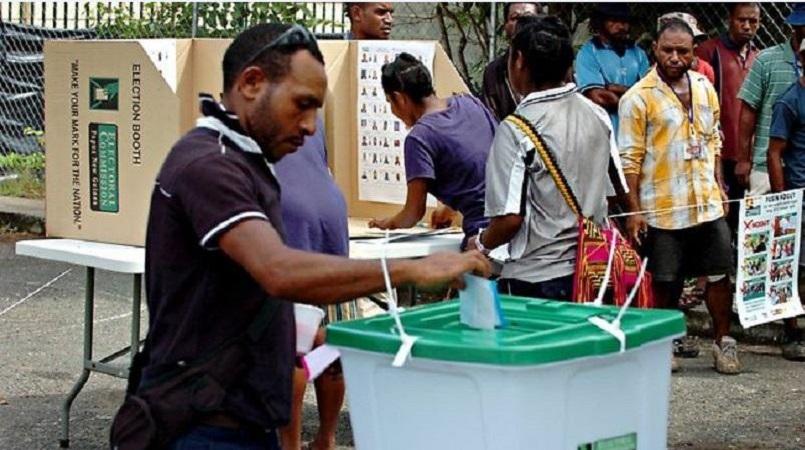
Most Papua New Guineans are in the dark about the true intentions of the changes to the electoral law, says a University of Papua New Guinea lecturer.
“As Papua New Guinea prepares for the National General Elections in April 2017, the Papua New Guinea Electoral Commission has submitted proposals for amendment when Parliament next sits on January 24th,” explains Political Science lecturer Patrick Kaiku.
“The PNG Electoral Commissioner, Patilias Gamato, has indicated that the amendment to the electoral laws by Parliament will result in, among others: The reduction of campaign period from the current eight weeks to four weeks, increase in nomination fee from K1,000 to K10,000 for national elections and K200 to K1,000 for LLG elections, increase in election petition filing fee from K5,000 to K20,000, and places for filing election petitions to be restricted to four with one per region.”
Kaiku, who has been teaching politics at UPNG for five years, says there are three key points to understand about these proposed amendments.
“Firstly, these proposed amendments are not informed by any rigorous debate outside Parliament, thus rendering the intentions of these proposals questionable,” he states.
“It is unfortunate that no report commissioned by either the PNG Electoral Commission, or the Constitutional and Law Reform Commission, has assessed the impact of these proposed amendments or even the costs and benefits of these changes.
“Law-making should not be a knee-jerk reaction to circumstances and unfounded assumptions.
“Secondly, the proposed changes, if passed by Parliament into law, are untimely, and will disadvantage marginal political parties and candidates.”
The lecturer believes increasing the costs of nomination fees, or reducing the number of weeks for campaigning, will unfairly discriminate against smaller parties or candidates who seek to influence policy-making in the country.
“When entering any National General Elections, sitting national Members of Parliament (MPs), particularly in government, enjoy a certain level of recognition in the electorate by virtue of their incumbency,” states Kaiku.
“Their access to the public service machinery, their influence in the district or provincial budgetary processes, and the networks they have built through the term of Parliament as sitting MPs, gives them an early head-start in any campaigning schedule. For smaller parties and candidates, the time needed to make inroads in the electorate will be limited through changes to the current campaign schedule.”
Finally, Kaiku says the likelihood of tribal or social conflicts will be heightened as a result of the proposal to make the Court of Disputed Returns process inaccessible to genuine cases of election petitions.
“PNG Electoral Commission’s decision to increase the election petition filing fee from K5,000 to K20,000 is an attempt to discourage challenges to election results.
“The PNG Electoral Commission must understand that disputing elections is a normal check and balance mechanism in the electoral process. When election dispute mechanism – the Court of Disputed Return – is deliberately made inaccessible to Papua New Guinea, gross violation of elections will be inevitable as well as post-election chaos.”
Kaiku says the PNG Electoral Commission should not absolve itself of the responsibility to conduct credible elections.
“PNG has had elections since 1964. With this long history of electioneering, the lessons learnt should be informing approaches in addressing the capacity and responsiveness of the PNG Electoral Commission in 2017.
“The PNG Electoral Commission must not treat Constitutional amendments to the electoral laws as the solution to dealing with election administration in PNG.
“And on their part, PNG law-makers, as they seek to debate the proposed changes, need to take into consideration what the changes will mean for their own prospects as they run for public office, and the lives of ordinary citizens who will be impacted by these changes.”
(Loop file pic)
